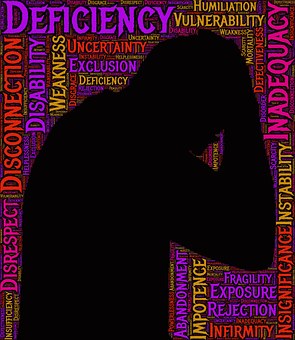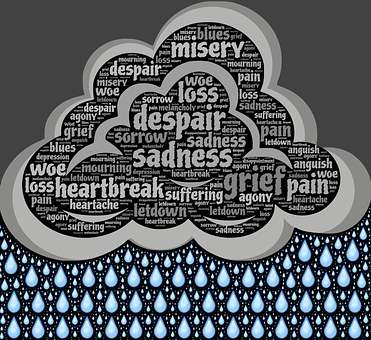
In life’s journey, you often encounter situations that result in emotional pain. “Emotional pain can become an addiction to some people. Overwhelmed with feelings like sadness, depression, guilt, shame or fear, these emotions become so common and constant that you may feel like it’s a part of you and you can’t imagine life without it,” according to Elizabeth Hartney, PhD.
In his book, Emotional First Aid, Guy Winch, a blogger from Psychology Today, lists seven such cases and provides tips on how to deal with them.
The first situation is rejection. It is natural to feel pain when a family member stops talking to you or your friends start ignoring you. Winch suggests four tips. First, stop criticizing yourself. Second, be aware of your strengths. Third, search for other people to replace the ones who rejected you. Last, prepare yourself for upcoming rejections by practicing on minor rejections that are easily surmounted.
The second situation is the loneliness. Loneliness can be a vicious cycle wherein the longer you go without socializing with others, the harder it is to make new friends or keep in touch with old friends. If you believe that no one cares about you or that other people are thinking negatively of you, Winch suggests you fight that belief with logical counterarguments. Winch also suggests practicing empathy, such as getting a pet that you can care for.

The third situation is loss and trauma. It is perfectly normal to feel suffering when you lose someone you love or when you have a traumatic experience. Winch suggests that you give yourself time to heal and to try to ease the pain using your usual coping methods. Try searching some additional helpful tips at BetterHelp if this doesn’t work.
The fourth situation is guilt. Winch lists three kinds of guilt. There’s unresolved guilt wherein you feel that you have not adequately apologized to someone you have wronged. Then there’s survivor guilt wherein you survive a situation that has one or more other fatalities. And finally there’s separation guilt wherein you believe you don’t deserve an independent and successful life. For unresolved guilt, Winch recommends that you apologize. For survivor and separation guilt, Winch advises that you apologize to yourself and then to forgive yourself.
The fifth situation is rumination. Rumination happens when you mentally go over and over your unhappy memories. Winch recommends that you tell yourself that other people do not see your mistakes in the same magnitude as you do. What seems to be a significant failure on your part might seem minor to others, or they may not even be aware of it. Winch also recommends distracting yourself and turning your mind to other thoughts. If you are angry at someone, try to see the positive side. If someone is insulting you or putting you down, view their words as constructive criticism and try to use them as opportunities for self-improvement. Work on healing yourself for your own betterment.
“I can recognize that I have the strength, resilience, and value to heal this hurt over time. I will stay true to my deepest values, focus on creating more value in my life, reach out to friends and other loved ones, recognize human frailty in my spouse and in myself, evaluate my options for a better future.” These words were uttered by Steven Stosny, Ph.D. for you to move on and heal.
The sixth situation is a failure. Emotional pain can result from shame due to breakdowns. Anxiety can also result from a fear of failure. Fear of making a mistake can even result in actual self-fulfilling failure. Winch’s recommendation is to talk to some close to you. They can provide emotional support and help you see the situation in a brighter light. For fear of failure, Winch suggests distracting yourself and using humor to cope with real or imagined shortcomings.

And the seventh situation is low self-esteem. Having low esteem can be a vicious cycle lowering your self-esteem even further. It makes you vulnerable to other people’s criticisms. It makes you doubt your abilities leading to your inadequate performance in your activities. Winch’s recommendations for the different situations that result in emotional pain can be used to deal with low self-esteem but in greater quantity. This includes being compassionate to yourself and focusing on your strengths. Be open about what you can and can’t do. Winch also recommends that you practice mindfulness, exercise willpower, and admit to yourself that you will fail sometimes.
Winch’s tips and recommendations can be categorized as cognitive-behavioral therapy, wherein changes in thoughts and behavior result in changes in one’s emotions. But if Winch’s strategies do not work, you should seek help from a mental health professional. As Elyssa Barbash Ph.D. said, “These people want to feel healthy and be free from distress, so they are more willing to actively engage in therapy in order to make changes.”
Most of the situations people encounter that result in emotional pain can be dealt with using Winch’s suggestions. You can use these strategies to prevent you from wallowing in emotional distress.